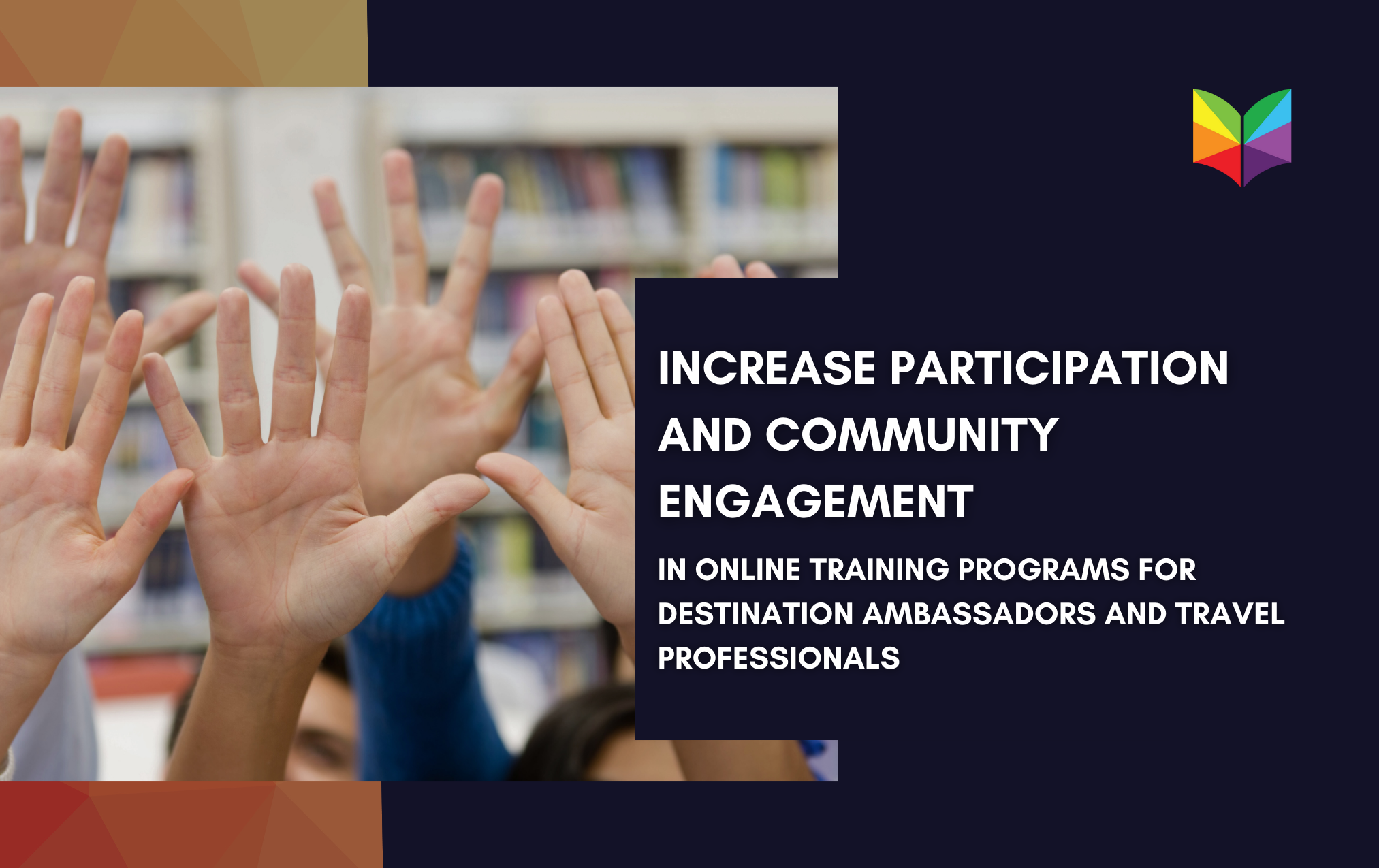
Increase Participation and Community Engagement in Online Training Programs for Destination Ambassadors and Travel Professionals
Destination marketing organizations (DMOs) play a crucial role in promoting and enhancing the appeal of their locales. A vital aspect of this is ensuring that destination ambassadors, advocates, and travel professionals are well-informed and enthusiastic about what they have to offer. One highly effective strategy to achieve this is by utilizing affiliate marketing to promote, distribute, and boost participation in online training programs. This can lead to increased visitor satisfaction, more positive social mentions, and a surge in visitor numbers.
Understanding Affiliate Marketing
Affiliate marketing is a powerful tool that allows you to expand your marketing reach by leveraging the networks of individuals or organizations (affiliates) who promote your training programs. In return, affiliates earn a commission for each new participant they refer to your programs. This creates a win-win situation: affiliates gain a financial incentive, and your organization benefits from broader exposure and increased participation.
Benefits of Using Affiliate Marketing for Online Training Programs
-
Expanded Reach: Affiliates can help you reach a wider audience by promoting your training programs to their networks. This can be particularly effective if your affiliates have strong followings in the travel and tourism industry.
-
Cost-Effective: You only pay affiliates for the participants they refer, ensuring that your marketing budget is used efficiently. This performance-based model minimizes the risk and maximizes the return on investment.
-
Increased Participation: By incentivizing affiliates to promote your programs, you can boost enrollment in your training courses. This can lead to a larger pool of well-trained destination ambassadors and travel professionals.
-
Enhanced Credibility: Affiliates who are trusted voices in the travel industry can lend credibility to your training programs, making them more appealing to potential participants.
How Affiliate Marketing Works
-
Affiliate Role Assignment: Any user within your training platform can be assigned the affiliate role. The number of affiliates you can have is unlimited, allowing you to build a diverse and extensive network.
-
Unique Affiliate Links: Once assigned, each affiliate receives a unique link that they can use to direct traffic to your training site. When a prospect visits your site through an affiliate link, a browser cookie records this information.
-
Tracking and Commissions: If the prospect signs up for your training program, they are associated with the affiliate who referred them. Commissions are tracked for any purchases or enrollments made by the referred user, including subscription installments or payment plans.
-
Control and Payouts: You have complete control over which products are eligible for affiliate commissions and can exclude specific offerings if desired. The affiliate feature is designed for tracking purposes, and you can manage payout policies and schedules independently.
Steps to Implement Affiliate Marketing for Your Training Programs
-
Identify Potential Affiliates: Look for individuals or organizations with a strong presence in the travel and tourism industry. Consider travel bloggers, influencers, tour operators, and even satisfied past participants of your programs.
-
Set Up an Affiliate Program: Use your training platform’s affiliate feature to create unique affiliate links and assign the affiliate role to selected users.
-
Create Compelling Marketing Materials: Provide your affiliates with engaging content and promotional materials they can use to market your training programs. This could include social media posts, email templates, and banners.
-
Track Performance: Monitor your affiliates' performance to understand which ones are driving the most traffic and enrollments. This data can help you optimize your affiliate program and focus on the most effective partners.
-
Regular Communication and Support: Maintain open lines of communication with your affiliates. Offer support, share updates about new training programs, and provide feedback on their performance to keep them motivated.
Conclusion
Affiliate marketing can be a game-changer for DMOs looking to enhance their online training programs for destination ambassadors, advocates, and travel professionals. By leveraging the networks of enthusiastic affiliates, you can expand your reach, increase participation, and ultimately boost visitor satisfaction and engagement. Embrace affiliate marketing as a strategic tool to elevate your destination's appeal and success.


Leave a comment